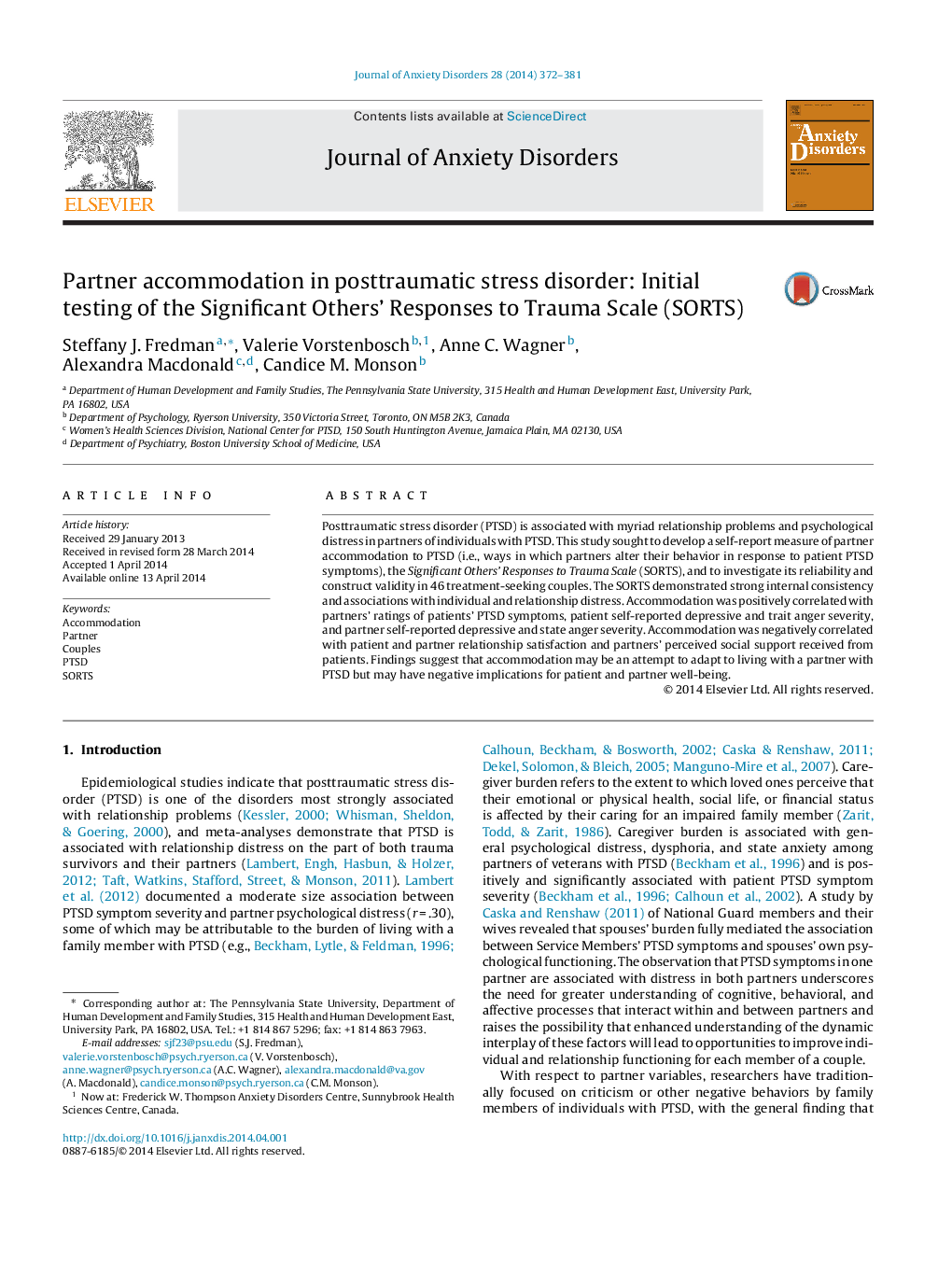| کد مقاله | کد نشریه | سال انتشار | مقاله انگلیسی | نسخه تمام متن |
|---|---|---|---|---|
| 909352 | 917277 | 2014 | 10 صفحه PDF | دانلود رایگان |

• We developed a measure of partner accommodation to patient PTSD symptoms.
• Accommodation is positively associated with patient PTSD symptom severity.
• Accommodation is positively associated with patient and partner depression.
• Accommodation is positively associated with patient and partner anger.
• Accommodation is negatively associated with relationship satisfaction.
Posttraumatic stress disorder (PTSD) is associated with myriad relationship problems and psychological distress in partners of individuals with PTSD. This study sought to develop a self-report measure of partner accommodation to PTSD (i.e., ways in which partners alter their behavior in response to patient PTSD symptoms), the Significant Others’ Responses to Trauma Scale (SORTS), and to investigate its reliability and construct validity in 46 treatment-seeking couples. The SORTS demonstrated strong internal consistency and associations with individual and relationship distress. Accommodation was positively correlated with partners’ ratings of patients’ PTSD symptoms, patient self-reported depressive and trait anger severity, and partner self-reported depressive and state anger severity. Accommodation was negatively correlated with patient and partner relationship satisfaction and partners’ perceived social support received from patients. Findings suggest that accommodation may be an attempt to adapt to living with a partner with PTSD but may have negative implications for patient and partner well-being.
Journal: Journal of Anxiety Disorders - Volume 28, Issue 4, May 2014, Pages 372–381